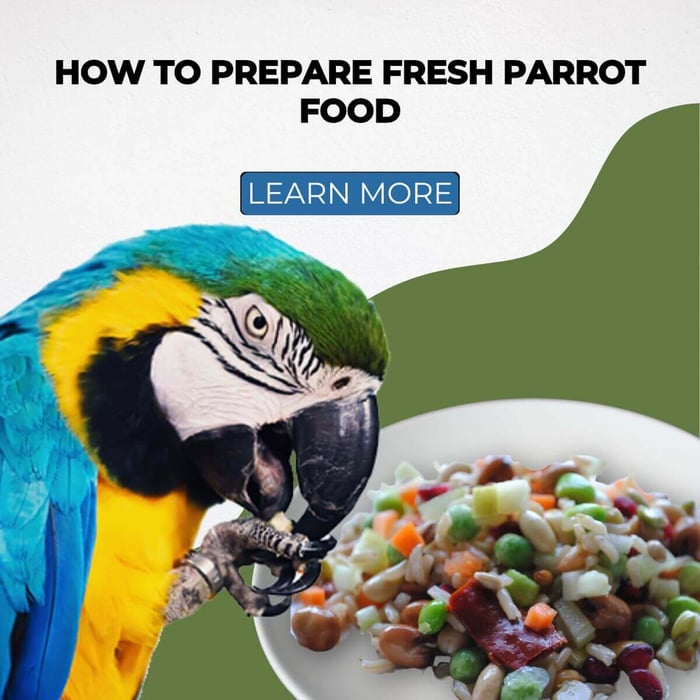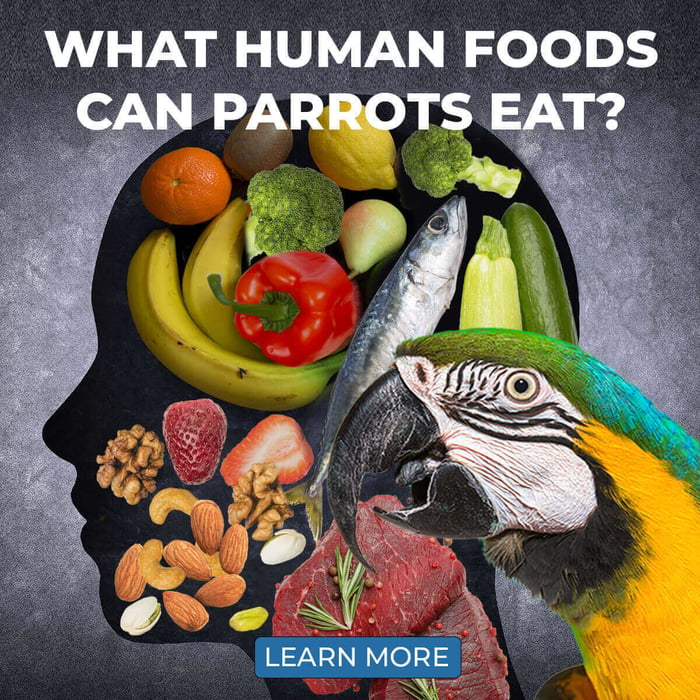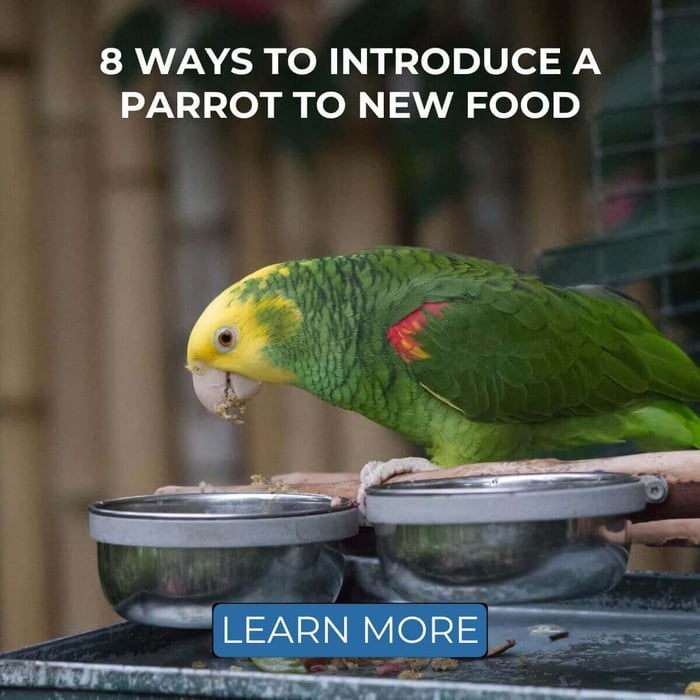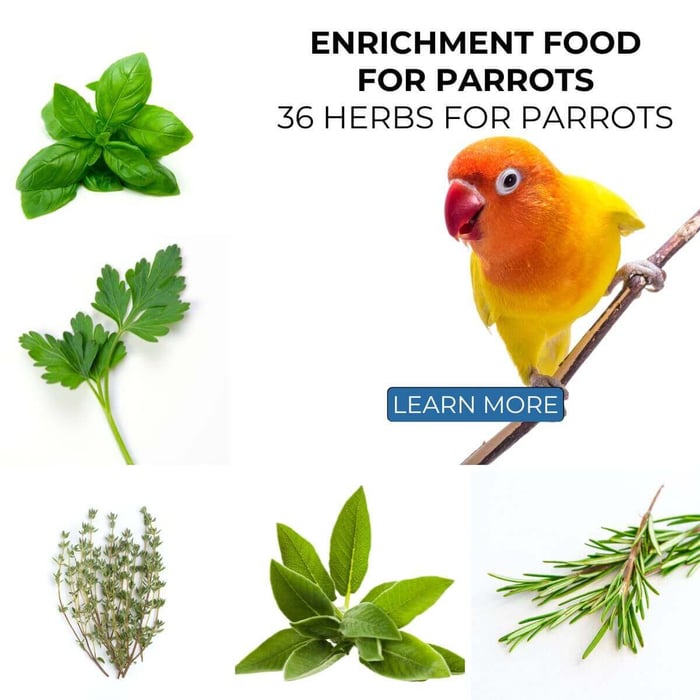Sprouting Seeds for Parrots In 4 Easy Steps
Here on the blog, we've talked before about the problems associated with feeding your parrot a seed-heavy diet. We're proponents of feeding pellets, which are less fatty and more suitable for domestic parrots.
This being said: we also think seeds have their place. Especially sprouted ones! Let's go into sprouting seeds for parrots and why you should be doing so.
Why sprout seeds for your parrot?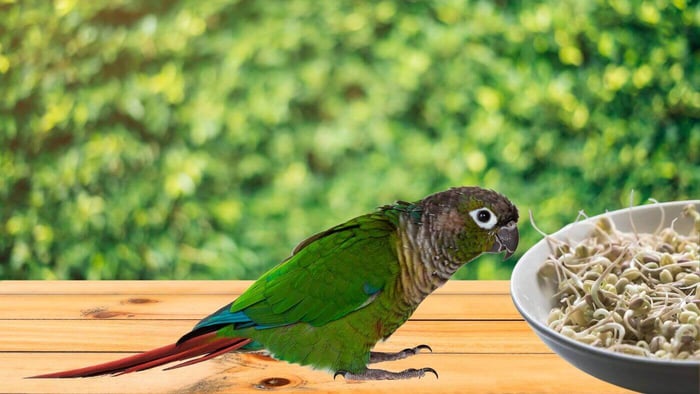
Dried seeds, like those found in many commercial parrot food mixes, are typically high in fats, which, in excess, can lead to obesity and other health issues. While these seeds do offer some essential nutrients, they lack the variety and nutrient balance that parrots need in their daily diet. This is where sprouting comes in.
When seeds are germinated, they undergo a transformation that significantly boosts their nutritional content. During the sprouting process, seeds convert some of their starches into simpler sugars, increasing their vitamin, mineral, and enzyme content. This makes sprouted seeds a much more nutritious option for your parrot compared to dried seeds. They are rich in vitamins A, C, and B-complex, as well as essential minerals like calcium and iron.
The best part? You don't have to buy expensive pre-sprouted seeds from the store. It's very easy to sprout seeds at home, and it’s an affordable way to add variety and nutrition to your bird’s diet. Plus, sprouting your own seeds can be a fun and rewarding project for you and your family.
Sprouting seeds for parrots Step 1: Gather necessities
To sprout seeds for your parrot, you won't need much.
- Seeds: Almost any type of seed can be sprouted, but certain seeds work better than others. Consider using a sprouting mix specifically designed for parrots, which typically includes a variety of seeds and legumes like millet, sunflower, lentils, and peas.
- Sprouting Tray or Jar: You can use a special sprouting tray, a sprouting jar, or even a regular mason jar with a mesh lid. These containers allow air to circulate, which is essential for the germination process.
- Patience: While it’s not a long wait, you’ll need a bit of patience. Some seeds, like alfalfa, sprout quickly, while others may take a few days.
For beginners, a Soaking & Sprouting Starter Pack for Healthy Parrot Food is an excellent choice. This starter pack, available at Parrot Essentials, contains everything you need to start sprouting seeds for your bird. It includes a specially designed sprouting tray, a variety of high-quality seeds, and helpful instructions, making it easy for both new and experienced parrot owners to incorporate fresh sprouts into their bird's diet.
Sprouting seeds for parrots. Step 2: Soaking
Although soaking isn't a necessity for smaller seeds like millet, it does help. For sprout mixes that contain larger seeds, like lentils and corn, it can really speed up the process.
Soak small seeds for a few hours and large seeds overnight.
Sprouting seeds for parrots Step. 3: Time to sprout!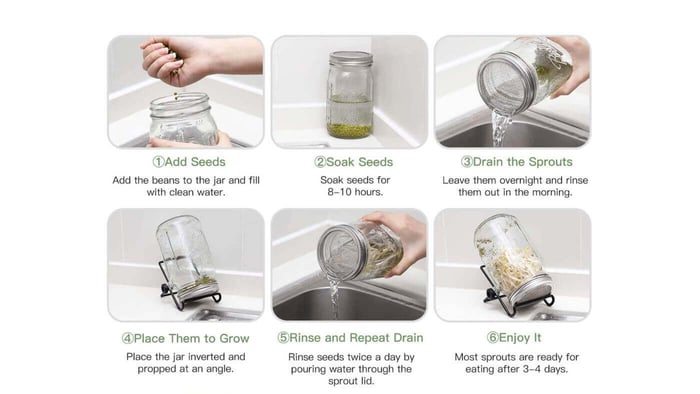
Once the seeds have finished soaking, prepare your sprouting tray or jar according to the instructions. If you're just using a normal mason jar, give the seeds a rinse and pop them in there.
Lay the mason jar at an angle, pointing down. Re-rinse and drain the seeds twice a day or so. With the smallest seeds, you'll notice the first roots popping out the next day.
Sprouting seeds for parrots. Step 4: Feeding
Once the first leaves pop up on your sprouts, it's time to offer them to your parrot. Most parrots will recognize them as food right away because they still resemble seeds.
You can keep sprouts in the refrigerator for a day or two. Do check carefully for mold or funky smells before feeding again!
To keep in mind
If you're interested in sprouting seeds for parrots, a few things to remember are:
- Seeds increase in volume when they sprout. Don't sprout too much, or you might end up having to toss a lot!
- Sprouts are quite susceptible to bacteria and mould, which is why you rinse them twice a day. Use your eyes and nose to inspect them before use.
- Some parrots don't know what to make of sprouts. Try mixing them in with your bird's normal food or even dab a bit of peanut butter on them to make them more interesting.
Conclusion
Sprouting seeds for parrots has many advantages. Not just because sprouts are nutritious, but also because they make for an easy way to add variety to your bird's diet, providing enrichment. It's also a fun project to involve kids in!

